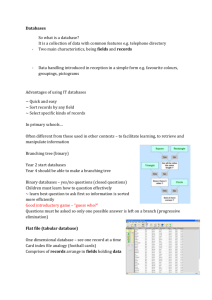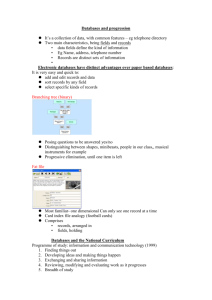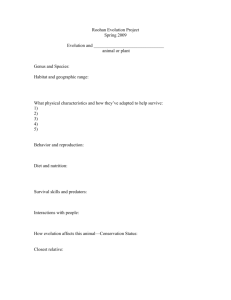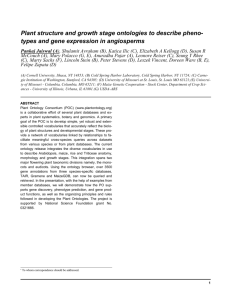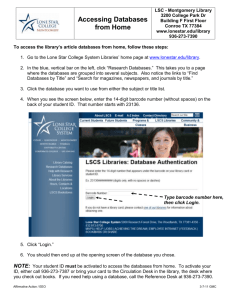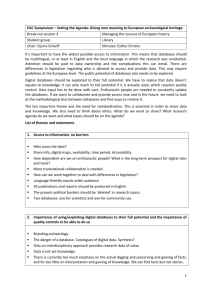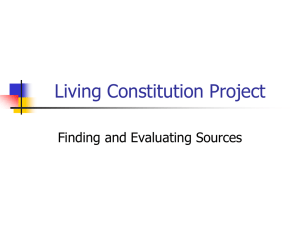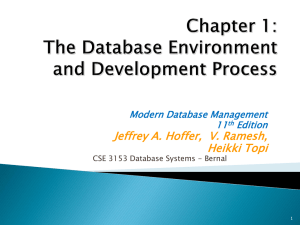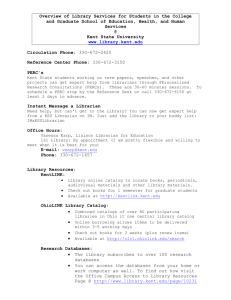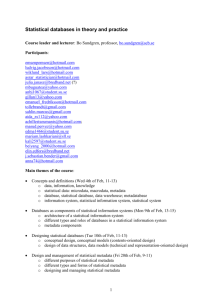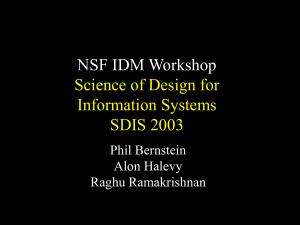Short Abstract Template
advertisement
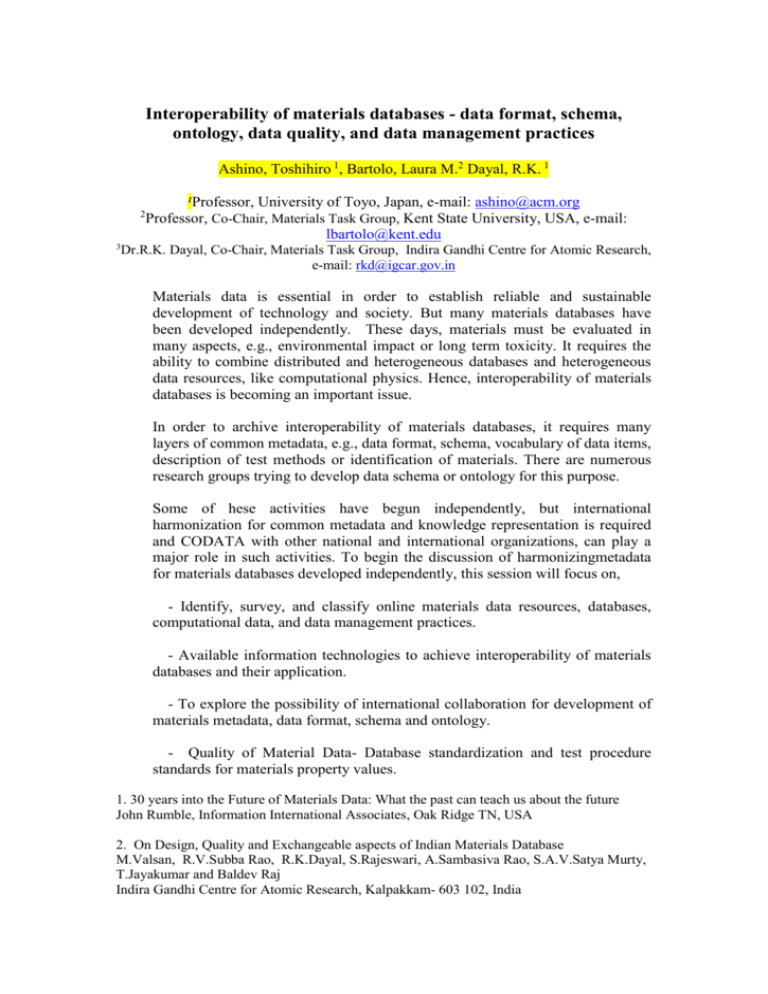
Interoperability of materials databases - data format, schema, ontology, data quality, and data management practices Ashino, Toshihiro 1, Bartolo, Laura M.2 Dayal, R.K. 1 Professor, University of Toyo, Japan, e-mail: ashino@acm.org Professor, Co-Chair, Materials Task Group, Kent State University, USA, e-mail: lbartolo@kent.edu 1 2 3 Dr.R.K. Dayal, Co-Chair, Materials Task Group, Indira Gandhi Centre for Atomic Research, e-mail: rkd@igcar.gov.in Materials data is essential in order to establish reliable and sustainable development of technology and society. But many materials databases have been developed independently. These days, materials must be evaluated in many aspects, e.g., environmental impact or long term toxicity. It requires the ability to combine distributed and heterogeneous databases and heterogeneous data resources, like computational physics. Hence, interoperability of materials databases is becoming an important issue. In order to archive interoperability of materials databases, it requires many layers of common metadata, e.g., data format, schema, vocabulary of data items, description of test methods or identification of materials. There are numerous research groups trying to develop data schema or ontology for this purpose. Some of hese activities have begun independently, but international harmonization for common metadata and knowledge representation is required and CODATA with other national and international organizations, can play a major role in such activities. To begin the discussion of harmonizingmetadata for materials databases developed independently, this session will focus on, - Identify, survey, and classify online materials data resources, databases, computational data, and data management practices. - Available information technologies to achieve interoperability of materials databases and their application. - To explore the possibility of international collaboration for development of materials metadata, data format, schema and ontology. - Quality of Material Data- Database standardization and test procedure standards for materials property values. 1. 30 years into the Future of Materials Data: What the past can teach us about the future John Rumble, Information International Associates, Oak Ridge TN, USA 2. On Design, Quality and Exchangeable aspects of Indian Materials Database M.Valsan, R.V.Subba Rao, R.K.Dayal, S.Rajeswari, A.Sambasiva Rao, S.A.V.Satya Murty, T.Jayakumar and Baldev Raj Indira Gandhi Centre for Atomic Research, Kalpakkam- 603 102, India 3. Materials Science Data Management Survey: Interests, Needs, and Practices Karen Wenzel; Todd Carpenter; Cathy Lowe; Laura Bartolo National Information Standards Organization; Center for Materials Informatics, Kent State University, USA 4. Cen and VAMAS activity with the CODATA Task Group for Materials Data Exchange in support of Scientific Research and Education Dr. Sims, Dr. Moreno, Dr. Bullough, Dr. Mies, Professor Ashino 5. ORE-OAI and Materials Data Exchange Professor Jane Hunter, Professorial Research Fellow, School of ITEE, The University of Queensland, Brisbane, Australia

